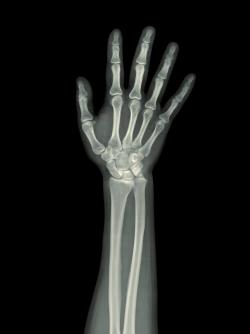Questions and Answers
Is abortion a sin? Does the Bible really teach that abortion is murder?
Question: I recently read a newspaper article claiming that in Exodus 21:22, the Bible shows that killing a child in the womb is not considered to be as serious as killing an adult, and that as a result abortion should not be considered a sin. Does the Bible really say this?
Answer: This mistaken claim has been around for years and was recently featured in an article in the Washington Post (“An Ancient Mistranslation Is Now Helping to Threaten Abortion Rights,” October 12, 2021). It is based on a misunderstanding of the biblical passage in question. Here is the passage as translated in the New King James Version:
If men fight, and hurt a woman with child, so that she gives birth prematurely, yet no harm follows, he shall surely be punished accordingly as the woman’s husband imposes on him; and he shall pay as the judges determine. But if any harm follows, then you shall give life for life (Exodus 21:22–23).
Some claim that “gives birth prematurely” actually means “has a miscarriage” and that the question of “harm” only applies to the mother. If so, “life for life” would only apply if the mother died; otherwise, the attacker would only pay a fine, even if the child died.
Regrettably, some English-language translations do imply what the Post writers propose. In the 1977 New American Standard Bible, we read, “And if men struggle with each other and strike a woman with child so that she has a miscarriage, yet there is no further injury….” Most translations, however—including the New International Version and English Standard Version—follow the NKJV in rendering “gives birth prematurely.” Even the NASB, revised in 1995, now reads “gives birth prematurely”—highlighting an early birth and not a miscarriage at all.
But which translation is correct? A closer look at the Hebrew makes the answer plain. The Hebrew word naphal is used in several places to indicate miscarriages, as in Psalm 58:8: “May they be like a snail which goes along in slime, like the miscarriage [naphal] of a woman that never sees the sun” (NASB). We find it, as well, in Job 3:16 and Ecclesiastes 6:3.
The word naphal does not appear in Exodus 21. Rather, we find the Hebrew word yatsa, which can be translated as “bring forth” (Genesis 1:12) or “come from” (Genesis 17:6). Yatsa is also used elsewhere in Exodus 21: “And if he does not do these three for her, then she shall go out [yatsa] free, without paying money” (Exodus 21:11). Significantly, the patriarch Job is quoted as using yatsa to describe his healthy birth: “Naked I came from [yatsa] my mother’s womb” (Job 1:21).
So, we can clearly see that Exodus 21:22 is discussing a woman giving birth prematurely as a result of an assault. And the NKJV conveys this correct understanding, as do most other Bible translations. In fact, the Amplified Bible gives the same translation, adding words in brackets to make the point explicitly: “If men fight with each other and injure a pregnant woman so that she gives birth prematurely [and the baby lives]….”
The teaching is clear: If the child was born prematurely but generally unharmed, the guilty party paid a fine. But, if the premature child was damaged in some way, the individual paid a proportional price—even “life for life” if the child died. Were this discussing the miscarriage of a stillborn child rather than a premature birth, the Hebrew language had a word for that and could have used it. Instead, Exodus 21:22–23 uses a word more plainly associated with birth.
The biblical teaching against abortion rests on far more than this, such as the fact that human life is sacred and made in God’s own image (Genesis 1:27; 9:6) and is woven together by God in the womb (Psalm 139:13). The clear teaching of Exodus 21:22–23 concerning the value of life in the womb is no exception.






